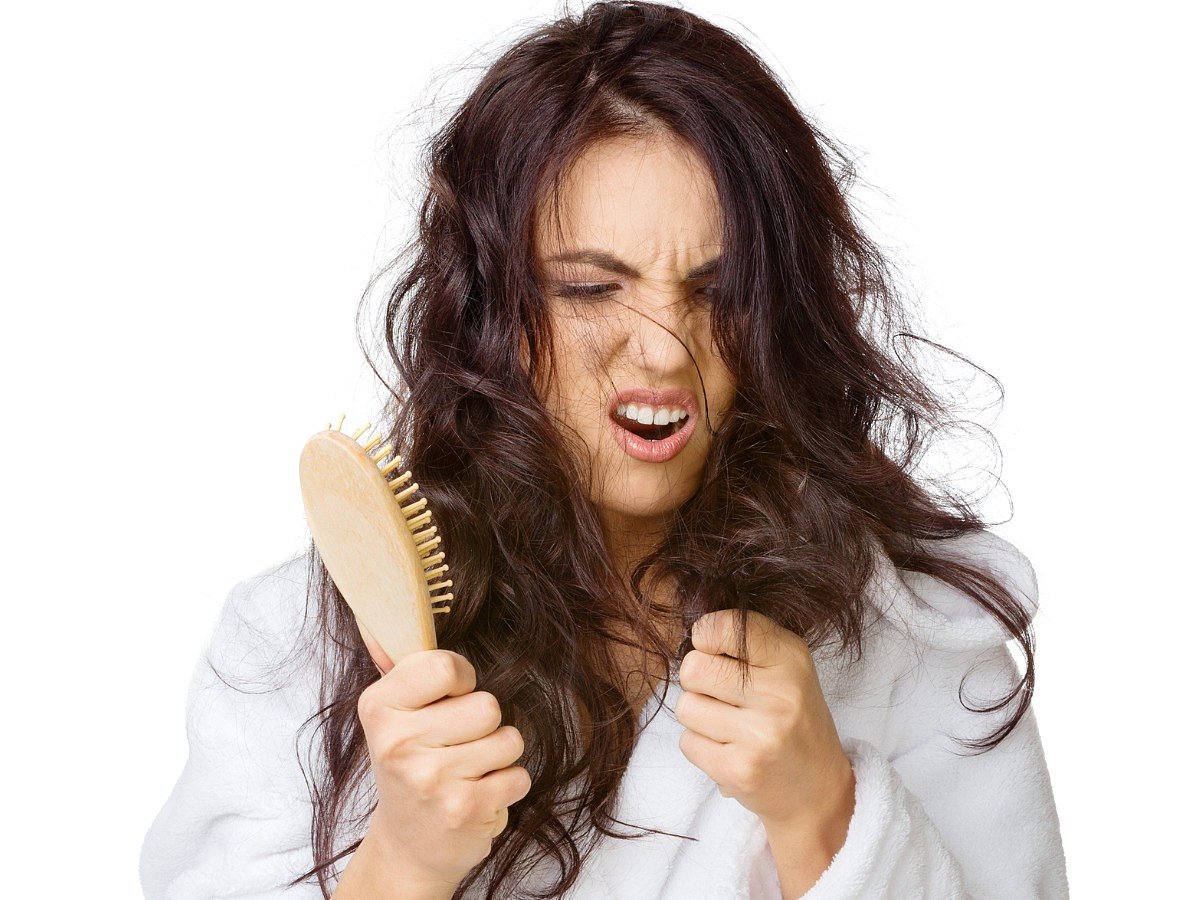Frizzy Hair Remedies: How Do You Get Rid Of Frizzy Hair Naturally?
Know the tips and tricks to manage frizzy hair

advertisement
Bad hair not only ruins your overall look but it also corrodes your confidence to an extreme degree. There is no doubt that hair has always remained an important asset for both genders. If you are not virtually blessed with velvety tresses, then you just need to know how to tame frizzy hair naturally. The monsoon season is synonymous with sticky, rough hair due to the humid weather. It increases the likelihood of dandruff, hair loss, and other issues.
But one hair problem during this season that makes hair unmanageable is having dry, frizzy hair. Frizzy hair is often dry, so moisturizing is key to preventing frizz. If your hair is naturally frizzy, certain hairstyles can also help keep your hair under control and protect it from frizz. Regardless of what is causing your frizzy hair, the right combination of products and hair care techniques can help.
1. Start with a Good Haircut
Get rid of dry, dead ends. Split ends can travel up the strand and can cause more damage and frizz, so it is best to get a haircut when you start to notice fraying. If you live in a region where humidity is high, then it is recommended to get a haircut with blunt lines. This helps keep weight in the haircut, which also helps keep the hair down.
2. Turn Down the Temperature
While a hot shower does feel good on the muscles, it doesn't do much good for your hair. The temperature of the water causes the cuticle to rise and when the cuticles are raised, hair needs more moisture. That doesn't necessarily mean you have to have a shivering shower but just turn the knob down a notch or two so the shower is warm, but not steaming.
3. Wash Wisely
Products with high alcohol content tend to dehydrate the hair causing the hair to search for moisture. To reduce frizz, use shampoos with hydrating ingredients like glycerin, which is a great humectant, meaning it absorbs the extra moisture in the air to create a protective coating over the strands.
4. Condition Your Hair Well
Many people believe that they only need to shampoo their hair every time they shower, but that just isn't the case. Even the best frizz-fighting shampoos strip away your hair's natural oils and moisturizers. Instead, alternate between using shampoo and conditioner one day and just conditioner the next to lock in the natural moisture. Also, only condition from the nape of the neck toward the ends of the hair strands to avoid a greasy scalp.
5. Reduce Friction
Rubbing a towel aggressively against your hair disrupts the cuticle. Instead, dry your hair in a towel turban to prevent friction frizz. You can also reduce friction by swapping out a cotton pillowcase for a silk pillowcase. The slippery fabric allows hair cuticles to glide across the pillowcase rather than get snagged by it. While brushing your hair, ditch the normal brush and opt for a wide-toothed comb instead. Less bristles mean less friction on the hair and less breakage from forcing thick tangles through rows of bristles.
6. Style Your Hair strategically
The best way to keep the hair frizz-free is to lock in moisture right after you shower by combing a leave-in treatment through your hair. Use products that contain oils and silicones which build a barrier on the hair and help to keep the moisture in the air from getting under the cuticle. For hair curly hair shines use those leave-in-treatments which not only prevent frizz, but coconut oil also helps protect against breakage.
7. Shield Strands From Heat
It is recommended to minimize the use of hot tools on your hair. But on days when you just can't put the curling iron down, it is advised to use a heat protectant that helps reduce damage to your hair. Most working sprays have heat protectants built in as well as anti-humectants
(At The Quint, we question everything. Play an active role in shaping our journalism by becoming a member today.)